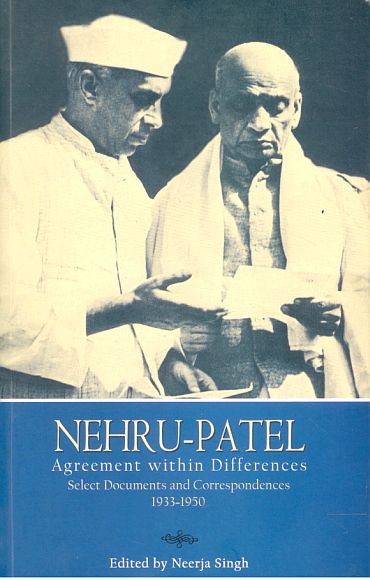
There is no better way of understanding the points of differences in views of our national leaders of the independence era than by revisiting the correspondence (through letters) exchanged between them.
A Delhi University history professor Neerja Singh has compiled and edited a series of letters exchanged between our first Prime Minister Pandit Jawaharlal Nehru and then Home Minister and Deputy Prime Minister Sardar Vallabhbhai Patel.
In Nehru-Patel: Agreement within Differences, professor Singh has put together a series of letters exchanged between the two prominent leaders between 1933- 1950.
In an interview to rediff.com's Priyanka, she argued that they possessed very different personalities and temperaments, yet both were deeply secular. However, timely differences erupted between the two because they believed in dealing with issues differently.
Nehru wanted to completely ban the Rashtriya Swayamsevak Sangh after the assassination of Mahatma Gandhi. But Patel argued that they couldn't do so because of lack of concrete evidence against the saffron outfit, and, being a democratic country, issues had to be dealt with as per the rule of law.
Click on NEXT to read the interview...
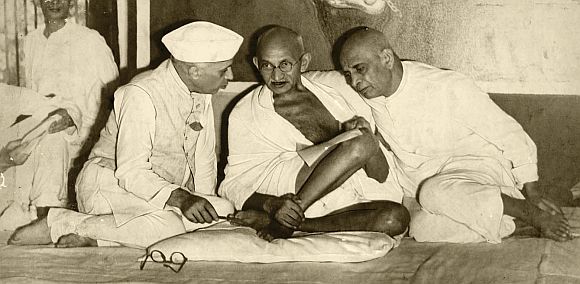
How did Sardar Patel and Pandit Nehru view the RSS and Hindu Mahasabha after Mahtma Gandhi's assassination? What course of action did each want to pursue?
Both Pandit Nehru and Sardar Patel held citizenship as the most important identity of a person. For them, the primordial identities of person, of belonging to one minority group or another should be, in the overall scheme of things, submerged within the identity of citizenship.
In another letter to the industry minister in the Nehru cabinet and Jana Sangh founder Shyama Prasad Mookerjee, Sardar Patel said, 'The RSS is like a militant group and there is no difference between the Hindu Mahasabha and the RSS. Both are hazards for the national security. We don't have concrete proof but it has been learnt that the leaders of Mahasabha had distributed sweets and had celebrated after the assassination of Gandhi.'
There was very a clear consensus between the two, and both viewed RSS as a militant Hindu organisation.
The difference was that Nehru wanted to ban it completely, dismantle their propaganda machinery and make arrests. On the other hand, Patel argued that since there was no solid and concrete evidence against RSS, stern action could be taken as things had to progress as per the rule of law.
Click on NEXT to go further...
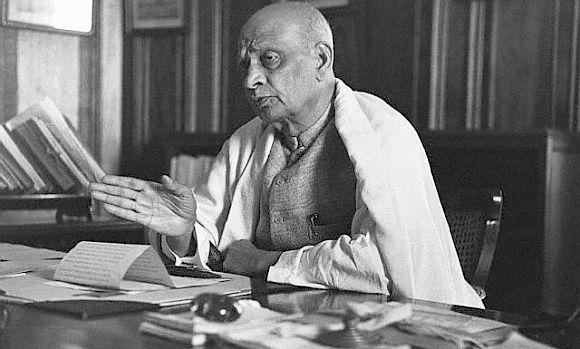
How did they (Nehru and Patel) differ on the role of the Muslim League?
Both agreed that India is a secular state, and for all Muslims residing in the country, their foremost loyalties should be towards the country.
Patel was more brutally honest and said that people belonging to the minorities in the country should not try to ride on two horses.
In a letter written to Nehru during the 1940s, Patel had remarked, 'Ours is a secular state and we cannot fashion our policies and shape our conduct in the way Pakistan does. We must see that our secular ideals are actually practices and realised. Here every Muslim should feel that he is an Indian citizen.'
...
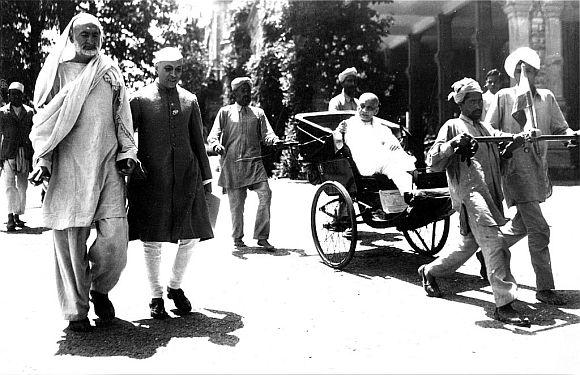
How would you describe their ideas of secularism? Were there differences in perception of the idea of secularism too?
Patel was thoroughly secular, as secular as Nehru was. The difference was that Nehru believed in scientific secularism, that is, he did not give importance or preference to any one particular religion in secularism.
But for Patel the root of secularism lay in Indian traditions, in Bhakti tradition. Just like Kabir, who was also secular, right? Patel never disjointed religion out of secularism. His ideas, idioms, metaphors, and language, were all deeply rooted in the Indian tradition. But both were equally secular.
Nehru was able to articulate his views in a larger frame because of his worldly exposure; that was also his advantage he could put things in the perspective of world history. There was an aura of intellectualism attached to Nehru; he was multi-dimensional, whereas Patel was single mindedly focused on the consolidation of the princely states.
Patel's advantage was that he was very focused and was a realist. Nehru was never perceived to be identified by any one ethnic or religious group, caste; he was considered to be close to all social, religious, caste and cultural groups. Patel was identified closely with Gujarat.
...

What were their views on the then emerging socialism?
Nehru was obviously attracted towards the new found wave of socialism, probably because he was younger to Sardar Patel.
But Patel was clear and emphasised that there was no room for alternate ideologies or for emerging class struggle before independence is won.
In one of his letters during the 1930s, Patel had written, 'I do not believe in any -isms, and I am with all -isms, whether it is capitalism or socialism. But right now, our first goal is to achieve independence, and no form of class war is acceptable to me right now."
Nehru and Patel shared a symbiotic relationship; the two complimented each other immensely.
...
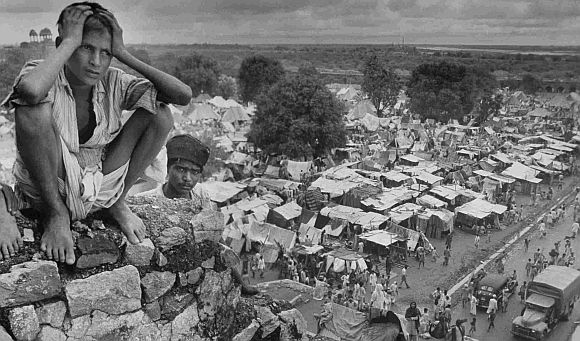
After Partition, how did the two leaders want to deal with the large refugee population?
About 120,000 refugees were living around Delhi; most of them were artisans. Nehru wanted them to stay in India. Patel fully agreed and said, 'Why would we send them? They are our people and their ancestors have always lived with us.'
Differences, however, arose on ways to accommodating them.
Nehru wanted to build a separate colony for them on the outskirts of the city, so that they could feel safe. Patel opposed this notion and argued that this step would lead to ghettoisation. He insisted that they should be accommodated in mixed habitats, to build trust and faith between communities. He insisted that it was their responsibility to provide them security.
...
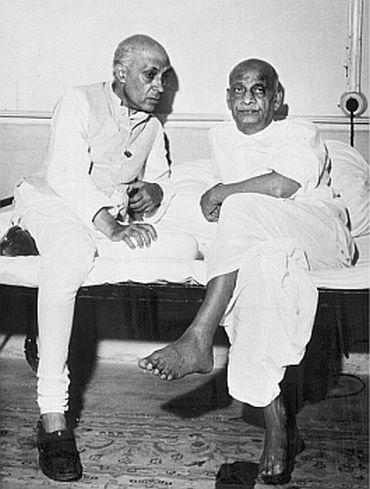
What is the impression you get after reading their correspondences over a long period of time?
I feel they were so open in expressing themselves, in candidly talking about their anguish and sadness, unlike the political leaders today.
The western concept of privacy has somehow crept into the political lives; but it was not so earlier. Leaders used to write long 3 to 4-page letters and they were so open about everything. Writing letters was the only way of communicating then.
These leaders believed in the politics of values. They were not swayed by dogmas, power, position or experience. They all had a character of strength. It is very clear. Patel's pragmatism and Nehru's intellectualism were both deeply rooted in Gandhi's philosophy composite culture of working together despite differences.
...